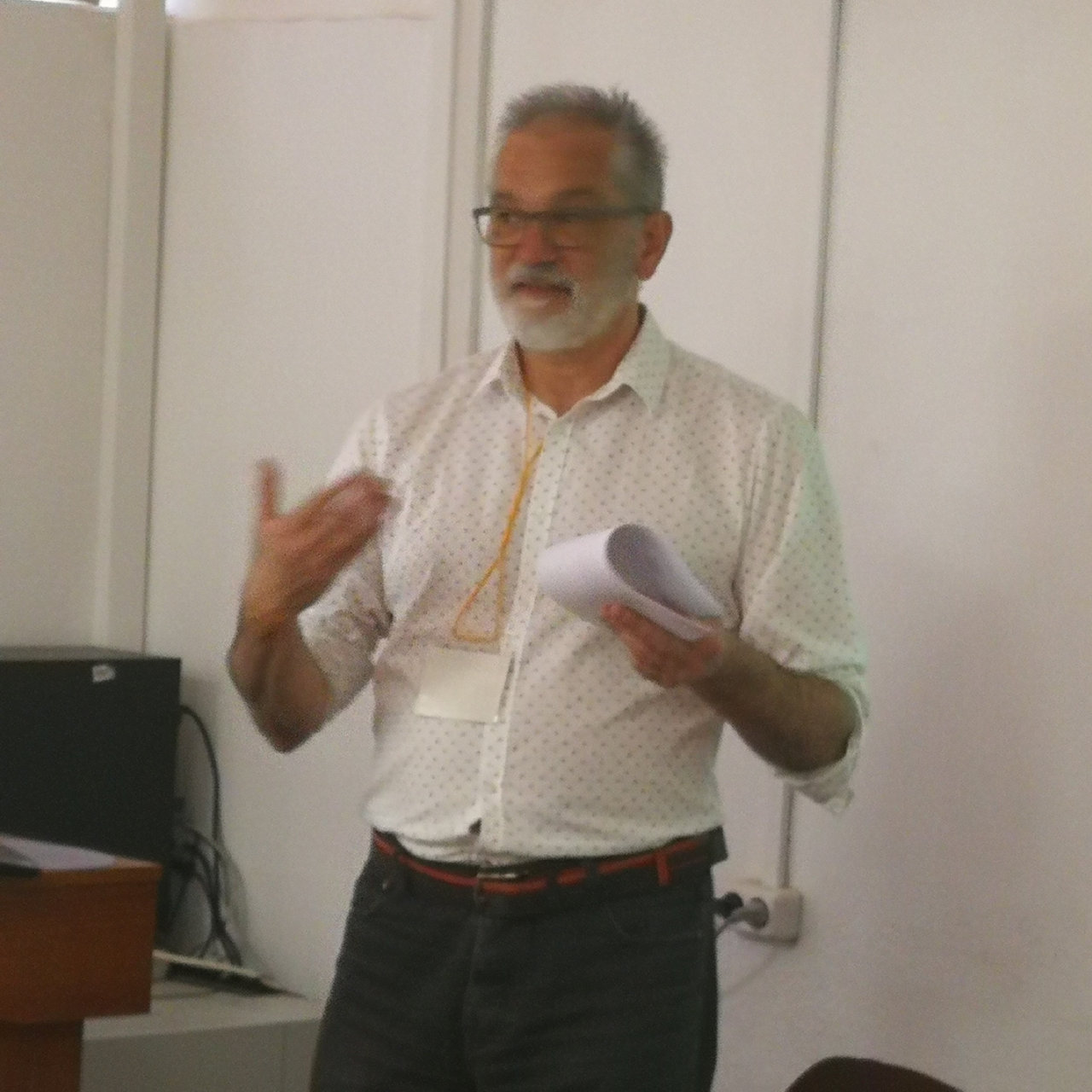Communication, education, translation: the role of language in the modern world discussed at RUDN
Professor Michael Kelly (University of Southampton, United Kingdom) presented the rationale for the importance of advancing multilingualism policies to strengthen human values in today's global society.
Professor Barbara Lewandowska Tomaszczyk (State University of Applied Sciences, Poland) made the audience think about the challenges and prospects of internationalization of education in the aspect of students' intercultural adaptation.
Questions of political linguistics in the work of translators, the specificity and ideological features of text verbalization at international summits on specific examples of negotiations between the leaders of Austria, Germany and Russia were presented by Mira Kadrich,.Professor of the University of Vienna (Universität Wien)
Dr. Neboja Radich (University of Cambridge, United Kingdom) proposed to the conference participants the author's concept of the phenomenon of multilingualism as the psycholinguistic state of the individual in modern society.
The challenges and tools for professional success of translators in the framework of multilingual negotiations on the settlement of corporate, social and individual disputes were analyzed by Dr. Roar Tun Vägger (Institute of Mediation, Norway).
“The conference includes key issues of the role of languages in modern society thus contributing to the professional growth of participants. It is vital to provide access to the conference materials for a wide range of representatives of the international community. In this regard, it is very important that the conference materials are prepared in English and published to the beginning of its work. I want to express special thanks to the staff of RUDN as organizers of the conference, ” said Professor Maria Theresa Zanola, President of the European Council on Languages (EU).
Another event of the conference was the presentation of the Riga Technical University Linguistic School (Latvia). A team of researchers led by Professor Larisa Ilyinskaya presented the main results of the work of the team in such areas as critical analysis of discourse, language for special purposes, and training non-linguistic students in Latvian and English.
“In our opinion, one of the advantages of the conference is a combination of interdisciplinary theoretical and applied focus. This perspective distinguishes the performances of almost all participants. The presentation module of colleagues from the University of Oman, dedicated to the possibilities of theoretical and methodological development and use of integrated technologies of artificial intelligence in the practice of independent study of foreign languages, is most interesting, - said associate professor Elena Vyushkina (Saratov State Law Academy) and associate professor Olga Kruchina (Kerch Sea Technological University).
Dr. Ulrike Würz noted the importance of the multilingual context of the conference, in which sessions and seminars were organized not only in English, but also in German. In addition, participants commented on the speeches in Arabic, Spanish, Italian, Chinese, Latvian and French.
“It is very important that within the framework of the conference special modules for students as young researchers and specialists in the field of practical intercultural activity are allocated. Dr. Radic's seminar on academic communication is undoubtedly useful for research of young professionals. Dr. Oliver Scheiber’s seminar on administrative legal norms and linguistic communicative requirements for the work of court interpreters in EU countries allowed future lawyers and future linguists to realize the need for interdisciplinary knowledge and skills for specialists providing linguistic support in administrative law contexts, said Professor Anna Lebedeva, All-Russian State University of Justice.
The topics of the sessions included discussions of the directions of modern linguistic and communicative research, issues of language teaching for specialists in various industries, problems and prospects of the theory and practice of translation in relation to the needs and requirements of a modern multilingual and multicultural society.
“We appreciate the commitment of our guests - representatives of universities and organizations – to the mission of our annual conference and their active involvement. The significance of such events for the staff of our department, in addition to the obvious possibility of strengthening and expanding partnerships, is to create international and intercollegiate teams. Thus, within the framework of this conference, the lecturers of our department prepared joint presentations and publications with colleagues from Austria, Great Britain, Italy, China, Serbia, and the Czech Republic, ” said Professor Anastasia Atabekova, Head of the Department of Foreign Languages at the Law Institute of the RUDN University.
Reference:
The conference brought together representatives from various countries, including Austria, Germany, Egypt, Spain, Italy, China, Latvia, Norway, Oman, Pakistan, Poland, Russia, the United Kingdom, the United States, and the Czech Republic.
The conference was attended by representatives of 36 organizations, including Russian and foreign linguistic and non-linguistic universities, international organizations dealing with international cooperation, educational policy, the consolidation of professional communities in the provision of legal and linguistic services.




